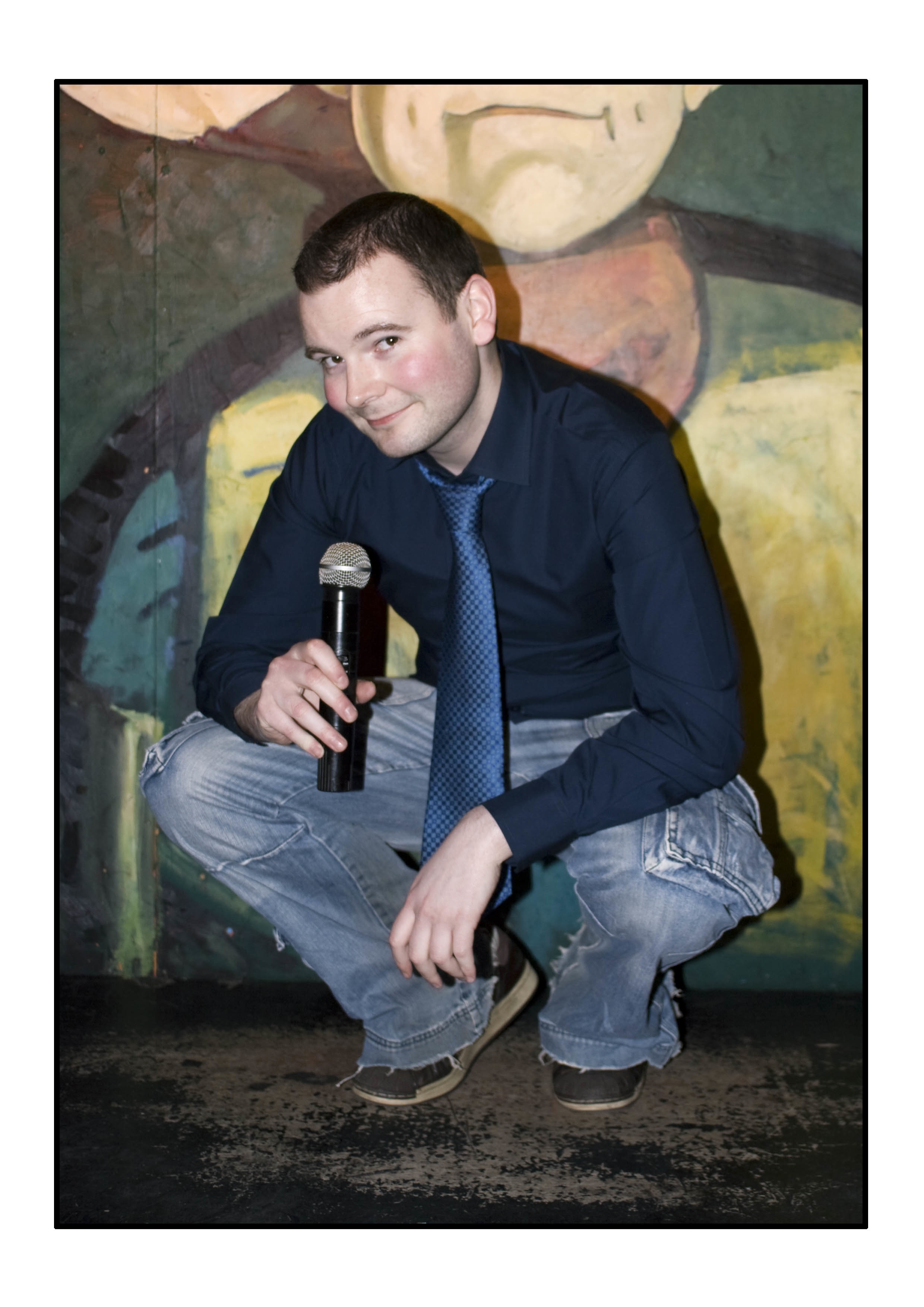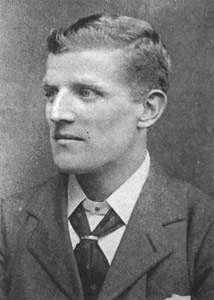Don’t forget the Scottish Comedy FC podcast! To download episodes and subscribe via iTunes, please click SCFC iTunes or for non-iTunes users, please click SCFC Libsyn

It always seems strange that these days not only are there so few Scottish players abroad, there are also so few Scottish coaches. Especially when things weren’t always that way. Far from it.
I’m attempting to put together a show for Previously…Scotland’s History Festival that gives some recognition to the Scottish coaching pioneers who helped play a formative role in the foundation of football in countries – and at clubs – which have gone to be of major significance in the beautiful game. This is the 3rd of my articles on the topic. If you have any more information or corrections to add to the piece below then please get in touch via the comments section below.
Remember the first of this series of articles and its mention of how Slavia Prague may initially have been looking to recruit the coaching services of J.T. ‘Jacky’ Robertson instead? Well, Robertson did eventually make his way to Central Europe too, even if the details of his coaching reign(s?) there are particularly hazy.
It does seem possible that Robertson had contact with Central European clubs in 1905 as in 1904, Rangers had visited Vienna to play in a tournament celebrating 10 years of First Vienna FC’s existence. Despite putting 9 goals past the Austrians, Rangers were impressed enough to enter into talks to sign their goalkeeper, Karl Pekarna. He became the first professional Austrian footballer when he moved to Glasgow. Pekarna would have been a teammate of Robertson’s for a few months, before both leaving the club in 1905, Pekarna returning to Vienna due to homesickness. ((http://de.wikipedia.org/wiki/Karl_Pekarna))
In 1905, the year Madden took over at Slavia, Robertson had been in the market for a coaching position. In the end though, he proved to be bound for London. The formation of Chelsea as a football club is a slightly strange one in that the club were set up to make use of the stadium, rather than vice versa. In 1904, Gus Mears had acquired the Stamford Bridge athletics stadium, intending to use it as a football ground. When Fulham turned down the chance to use it…he set up his own club, Chelsea, naming them after the neighbouring borough. Hence, Chelsea actually play in Fulham ((http://en.wikipedia.org/wiki/History_of_Chelsea_F.C.))
The first player to sign for the club was Robertson, then a 28 year-old Rangers player with 16 Scotland appearances to his name (captaining the side on 3 occasions ((http://www.huszadikszazad.hu/cikk/blackburn-rovers-ellenfelei-a-ftc-es-mtk)) ). One of his notable appearances for Scotland saw the national team playing in the colours of Lord Rosebery (something they did on at least 9 occasions between 1881 and 1951) in a match in which they defeated England 4-1. Robertson captained the side that day and was told by his Lordship, “I have never seen my colours so well sported since Ladas won the Derby.” ((http://www.toffs.com/Scotland-1900-Rosebery/productinfo/3065/))
Robertson signed on at Chelsea to be player-manager. He became the West London club’s first signing, first manager…and as it would turn out, first scorer (in a 1-0 away win over Blackpool on the 9th of September, 1905 ((http://en.wikipedia.org/wiki/1905–06_Chelsea_F.C._season)) ). In their first season, Chelsea finished 3rd in the 2nd Division, one place off promotion. Strangely, the next season, he decided to quit in November, with Chelsea again sitting third in the table. They would go on to be promoted at the end of the season. Shortly after quitting Chelsea he took up a new position…as player-manager of Glossop.
That sounds bizarre, but bear in mind that Chelsea had only been in existence for just over a season (and indeed it would be 1955 before they won their first major trophy, the league championship) so the heights they were capable of reaching were as yet unknown. Also, Glossop had made it to the top flight in 1899-1900…albeit, Glossop is often regarded as the smallest town to have had a club in the English top-flight. ((http://www.theguardian.com/notesandqueries/query/0,5753,-21474,00.html))
What is most likely to have swung Robertson’s resignation from Chelsea and then appearance at Glossop is that the latter were funded at the time by Sir Samuel Hill-Wood (who would later become chairman of Arsenal, his son Denis and grandson Peter also serving as chairmen of the club). Hill-Wood “poured in money” ((http://www.theguardian.com/football/2009/may/10/fa-vase-glossop-north-end-arsenal)) to the club. So perhaps the Glossop were actually more worthy of a ‘moneybags’ title than Chelsea at that time.
And so, according to Wikipedia, it’s here that Robertson’s coaching career ends.
That wasn’t the case though. As one article on the rivalry between Austrian and Hungarian football states:
“The emergence of Schlosser made a huge difference, as did the arrival in 1911 of a Scot, John Tait “Jacky” Robertson, formerly of Everton, Rangers, Southampton and Chelsea, as coach of MTK. The stereotype – that the Austrians held the advantage in technical quality and played the better football while the Hungarians held the edge in temperament and hence were more effective – began to change, Robertson’s tenure at MTK prompted a Rangers club obituary to state that “it was often said by leaders of the game in Austria and Hungary that it was Jacky Robertson who laid the foundations of the cultured style of football played there”. ((http://www.hungarianreview.com/article/great_expectations))
Robertson’s presence in Budapest is agreed upon by Richard McBrearty, curator of the Scottish football museum at Hampden:
“By 1911 Robertson was in Budapest coaching the MTK Club and would help to raise the standards of the Hungarian game to match that of the Austrians. During this period Celtic became the first Scottish club to visit Hungary. The Parkhead side travelled to Budapest in 1911 and 1914.” ((http://footballcurator.blogspot.co.uk/2013_05_01_archive.html))
Robertson had certainly kept in touch with football in Central Europe. In 1906 he had been present at a match in Vienna between MTK and the Vienna Cricket and Football Club (at football, that’s just the full name of the club). ((http://www.huszadikszazad.hu/cikk/blackburn-rovers-ellenfelei-a-ftc-es-mtk
)) At some point, he’s also believed to have crossed paths with Madden, who told him that coaching football in Europe made for a far better life than being a riveter in the shipyards! ((http://www.thecelticwiki.com/page/Madden,+Johnny+-+Pics))
Unfortunately for Robertson, in his time with the club he was unable to guide MTK to the title. They finished 2nd behind city rivals Ferencvaros, though he did have the consolation of a 1-0 derby victory over them. ((http://hu.wikipedia.org/wiki/1911–1912-es_magyar_labdarúgó-bajnokság_(első_osztály)))
As with Madden, Robertson appears to have brought an attention to physical preparation and treament with him. The Hungarian international and MTK player, Jeno Konrad, said “I do not suffer from Anglomania but the recovery rate of Hungarian players is solely down to the influence of the English trainer, Robertson.” ((http://www.mlsz.hu/blog/2012/05/13/neves-elodok-nyomdokain-a-dvsc/))
We’ll just have to forgive him for his geographical confusion! Konrad would go on to manage a number of clubs himself, including Austria Vienna and Nuremberg, as well having as spell as assistant-coach of Sporting Lisbon. ((http://en.wikipedia.org/wiki/Jenő_Konrád)) His words suggest that his time under Robertson had an influence.
Unfortunately, I can’t find much more information on Robertson’s time on the continent. He seems to have left MTK in 1913 (the club having finished 2nd in the league to Ferencvaros again) and been succeeded by an Englishman called Robert Holmes. ((http://en.wikipedia.org/wiki/Template:MTK_Budapest_FC_managers)) Holmes held the post for a season, before being replaced by a man called Jimmy Hogan…who wasn’t Scottish but was influenced hugely by Scottish players and coaches and would go on to be credited with laying the groundwork for the ‘Magical Magyar’ era of Hungarian football. ((Jonathan Wilson, The Anatomy of England: a History in Ten Matches (Orion Publishing Group, London 2010))
The historian Billy Kay mentions Robertson having a spell as coach of Rapid Vienna, however he doesn’t appear in the club’s list of coaches from 1910 onwards (nor for Austria Vienna or First Vienna). ((http://www.billykay.co.uk/Pages/fitba.asp)) If he is to be remembered for tactical innovation as well as for innovations in physical preparation, then its for a disappointingly defensive one. John Cairney’s book ‘A Scottish Football Hall of Fame‘ suggests that Robertson may have been responsible during his playing career for introducing the pass back to the goalkeeper! ((http://books.google.at/books?id=BkICPoHh3oAC&pg=PT26&lpg=PT26&dq=%22john+tait+robertson%22+rapid&source=bl&ots=PPtKLC-S2r&sig=r0Jm5LQJOpEsR5gnbvT_ITn3qII&hl=sk&sa=X&ei=VbocUsrWIoGo0AXB64BI&ved=0CFsQ6AEwBg#v=onepage&q=%22john%20tait%20robertson%22%20rapid&f=false))
Robertson died in Wiltshire in England at the age of 57. ((http://en.wikipedia.org/wiki/John_Tait_Robertson))
You can download/listen/subscribe to the Scottish Comedy FC podcast via this link for iTunes users SCFC iTunes or via this link for non-iTunes users SCFC Libsyn
———————————————————————————————————-
About the Author
Twice runner-up in Scottish Comedian of the Year finals, Teddy was named ‘Best Up and Coming Comedian’ at the Scottish Variety Awards in 2010. He’s written for two BBC Radio 5 ‘Unsporting Reviews of the Year’, and has also worked as both writer and script editor on the BBC1 Scotland football shows ‘Offside’ & ‘Only An Excuse?’. He’s been a Rangers season-ticket holder for the past 17 years, but he’s all about the football not “all that other sh*te”. Also has a fondness for Dynamo Kyiv that can be traced back to an unhealthy obsession with Alexei Mikhailitchenko (or Oleksiy Mykhalychenko if you prefer to transliterate from the Ukrainian rather than the Russian. That’s the unhealthy obsession we’re talking about.)
“brilliant Scottish comic” Kate Copstick, Scotland on Sunday
“Head, shoulders, knees and toes above the rest…mighty stage presence and impressively high punchline ratio” Brian Donaldson, Scotsman
“freshly minted topical gags…pin-sharp lines…great routine…a class act” Steve Bennett, Chortle.co.uk
“has flourished…cracking lines” Jay Richardson, Scotsman

